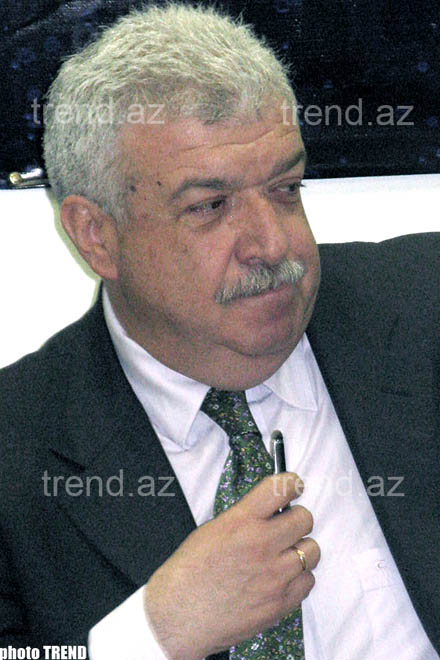Azerbaijan, Baku, Jan. 11 / Trend E. Tariverdiyeva /
The activity demonstrated by the Turkish and Russian politicians in early 2010, must be beneficial for the settlement of the Nagorno-Karabakh conflict, Mikhail Gusman, first deputy director general of Itar-Tass news agency said.
"On the one hand, Turkish Prime Minister Recep Tayyip Erdogan's visit to Moscow and Russian Foreign Minister Sergei Lavrov to Armenia are in the regular agenda of the inter-state dialogue, between these countries. On the other hand, the activity demonstrated by politicians in early 2010, must be beneficial for such a long and painful for Azerbaijan conflict to be solved," Gusman told Trend .
Turkish delegation headed by Prime Minister Recep Tayyip Erdogan will be in Moscow on Jan. 12 at the invitation of Russian Prime Minister Vladimir Putin. Turkish Prime-Minister has recently said that he plans to urge Moscow to intensify efforts to solve the Nagorno-Karabakh conflict.
Russian Foreign Minister Sergei Lavrov will discuss the problem of Nagorno-Karabakh settlement during the visit to Armenia on January 13-14. He will meet with Armenian President Serzh Sargsyan and Foreign Minister Edward Nalbandian there, Russian Foreign Ministry spokesman Andrei Nesterenko said.
"Exchange of views to continue the negotiation process on Nagorno-Karabakh settlement in the context of intermediary efforts taken by Russia to solve the conflict will be in the center of attention," Nesterenko said in an interview with RIA Novosti.
The conflict between the two South Caucasus countries began in 1988 when Armenia made territorial claims against Azerbaijan. Armenian armed forces have occupied 20 percent of Azerbaijan since 1992, including the Nagorno-Karabakh region and 7 surrounding districts. Azerbaijan and Armenia signed a ceasefire agreement in 1994.
The co-chairs of the OSCE Minsk Group - Russia, France, and the U.S. - are currently holding the peace negotiations.
Gusman said one should realize that issues related to the settlement of Nagorno-Karabakh conflict are directly in the context of the efforts made by countries-mediators. The development of relations, which has been recently observed between Armenia and Turkey, is likely to impact on solving the conflict.
Turkish and Armenian foreign ministers Ahmet Davutoglu and Edward Nalbandian signed the Ankara-Yerevan protocols in Zurich Oct. 10.
Diplomatic relations between Armenia and Turkey were broken in 1993.
"I think, besides Azerbaijan and Armenia, Russia is one of the countries greatly interested in solving their long-standing territorial conflict. Russia is really taking important steps envisaging Russia's desire to be an honest mediator in the settlement of the Nagorno-Karabakh conflict, Gusman said.
Gusman said that in this context one can consider several trilateral meetings between the presidents of Azerbaijan, Armenia and Russia in the political calendar of last year.
But whatever efforts Moscow and other mediators have made, the presidents of two countries - Azerbaijan and Armenia must solve this conflict, the expert said.
"If one speaks about Russia's role in supporting Armenian President Serzh Sargsyan on the delicate question of concessions in the Nagorno-Karabakh conflict, the following question arises whether this assistance is sufficient compared to the frustration that can cause this kind of concession in Armenia, Gusman said.






